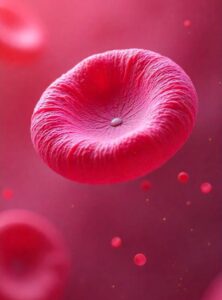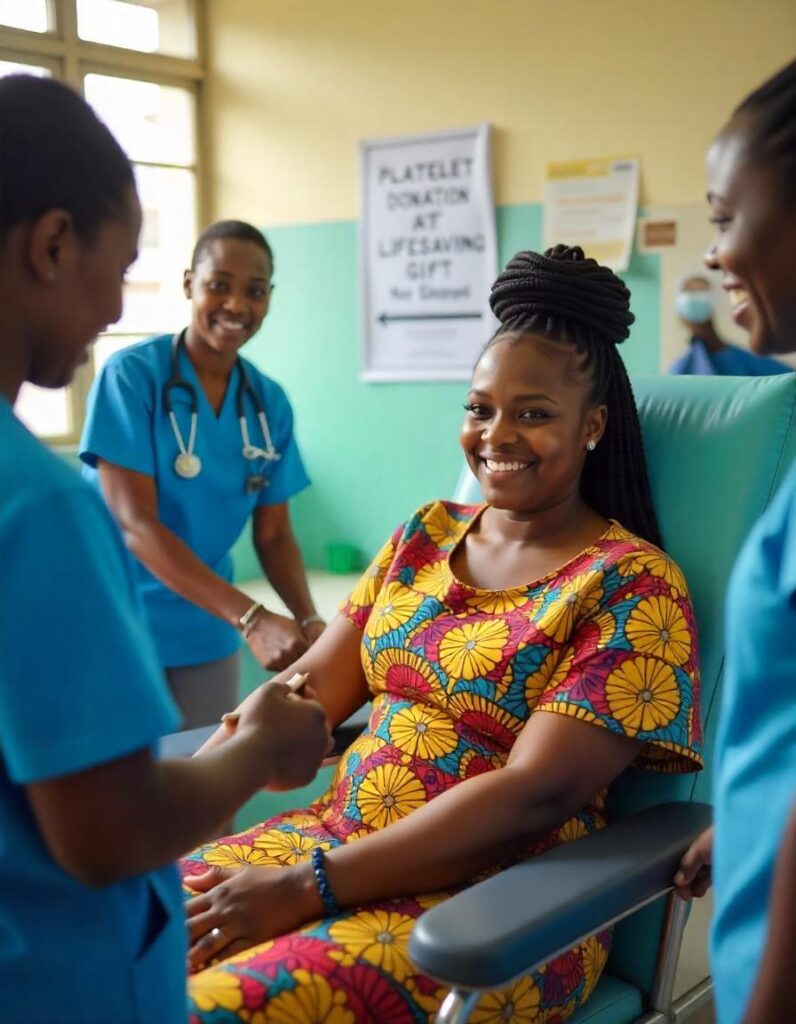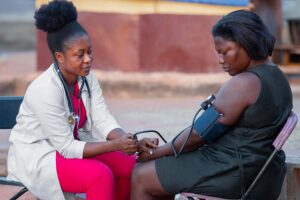In a world where every second counts, the science behind blood compatibility can make all the difference between life and death. Blood donation is not just a routine medical practice—it’s a matter of life-saving urgency, and understanding why your blood type matters could empower you to take action. Oneus in Nigeria has made it their mission to spread awareness and ensure that no one in need of blood goes without. Blood compatibility is a key factor in successful transfusions, organ donations, and even plasma donation. This article will break down the vital reasons why your blood type matters and how donating blood can save a life.
Understanding Blood Groups: Why It’s More Than Just a Name

Your blood type is determined by two key factors: your blood group (A, B, AB, or O) and your rhesus factor (positive or negative). Each person’s blood has unique markers that play a critical role in blood transfusions. Knowing your blood type helps medical professionals determine if you can donate or receive blood from others safely.
For example, people with O negative blood are universal donors, meaning their blood can be given to anyone, regardless of the recipient’s blood type. On the other hand, AB positive individuals are universal recipients—they can receive blood from anyone. This precise compatibility is why donating blood is such a crucial act of generosity.
Blood Donation: The Lifeline You Can Offer
Donating blood is more than just a quick medical procedure. It’s an act of life-saving compassion. Blood donation helps save lives in emergencies, surgeries, childbirth, and cancer treatments. However, the demand for blood often exceeds the available supply, especially in under-resourced countries like Nigeria. That’s where organizations like Oneus in Nigeria come in. They are working tirelessly to ensure that there’s a steady, reliable supply of blood.
Plasma donation is another essential form of giving. Plasma, the yellowish liquid part of your blood, can be separated from the red cells, platelets, and white cells. Plasma is crucial in treating conditions like burns, shock, and liver disease. If you’re wondering about plasma donation centers, Oneus can guide you to reputable places in Nigeria where you can donate plasma, just like blood donation.
The Risks of Not Donating Blood: Why Your Action Matters
Every day, accidents, illnesses, and surgeries create an ongoing demand for blood and blood products. If you don’t donate, lives are at risk. People suffering from conditions like leukemia, sickle cell anemia, and thrombocytopenia depend on blood donations for their survival. If you’re eligible to donate but fail to do so, you could be denying someone the opportunity to survive.
Additionally, a lack of bone marrow donation or stem cell donation in Nigeria can prevent potential life-saving treatments for those with certain blood cancers. Imagine being in a situation where a loved one desperately needs a blood transfusion or platelet donation, but there’s a shortage. That’s why it’s vital to act now.
The Science Behind Blood Compatibility: A Quick Guide
-
Blood Groups and Compatibility:
-
Type A: Can donate to A and AB; can receive from A and O.
-
Type B: Can donate to B and AB; can receive from B and O.
-
Type AB: Can donate only to AB; can receive from all blood types (universal recipient).
-
Type O: Can donate to anyone (universal donor); can receive only from O.
-
-
Rhesus Factor:
-
Rh-positive blood can be given to both Rh-positive and Rh-negative individuals.
-
Rh-negative blood can only be given to other Rh-negative people.
-
These combinations are critical in preventing hemolytic transfusion reactions, which can be life-threatening. That’s why compatibility matters and why blood typing is necessary.
The Power of Plasma: More Than Just Blood Donation
When most people think of blood donation, they focus on red blood cells. But there’s another equally important donation: plasma donation. Plasma is used in medical treatments for burn victims, shock, and liver disease. As a plasma donor, your contribution can help treat a variety of life-threatening conditions.
Some individuals might consider selling plasma to earn extra income, but this practice must be done ethically. Ensure you are donating through legitimate, certified plasma centers. Whether you’re giving plasma or donating whole blood, remember that the most important aspect is the difference you make in someone’s life.
Beyond the Donation: Other Forms of Blood Contributions
In addition to blood and plasma donation, Oneus also emphasizes the importance of bone marrow donation and cord blood banking. These donations can provide life-saving treatments for those suffering from blood cancers and other debilitating diseases.
Private cord blood banking offers parents the opportunity to store their child’s umbilical cord blood for future medical use. This is a growing field with increasing demand, as it can be used in the treatment of conditions like leukemia and sickle cell disease.
The Call to Action: Give Blood, Save a Life
You may not always know who your blood is helping, but you can be sure that your donation is making a world of difference. Oneus is actively working to make blood donation accessible to all Nigerians and ensure that no one in need is left without. If you’re ready to be a hero and contribute to saving lives, don’t wait any longer.
Give blood, save a life! Whether it’s donating blood, plasma, or even your bone marrow, your generosity can help countless people in critical need.
Ready to Donate? Here’s How:
-
Visit: Oneus Blood Donation Website
-
Contact Us: info@oneusng.com
-
Call: +234 902 168 2822
Your blood can make a difference. Donate today, and become a lifesaver!




